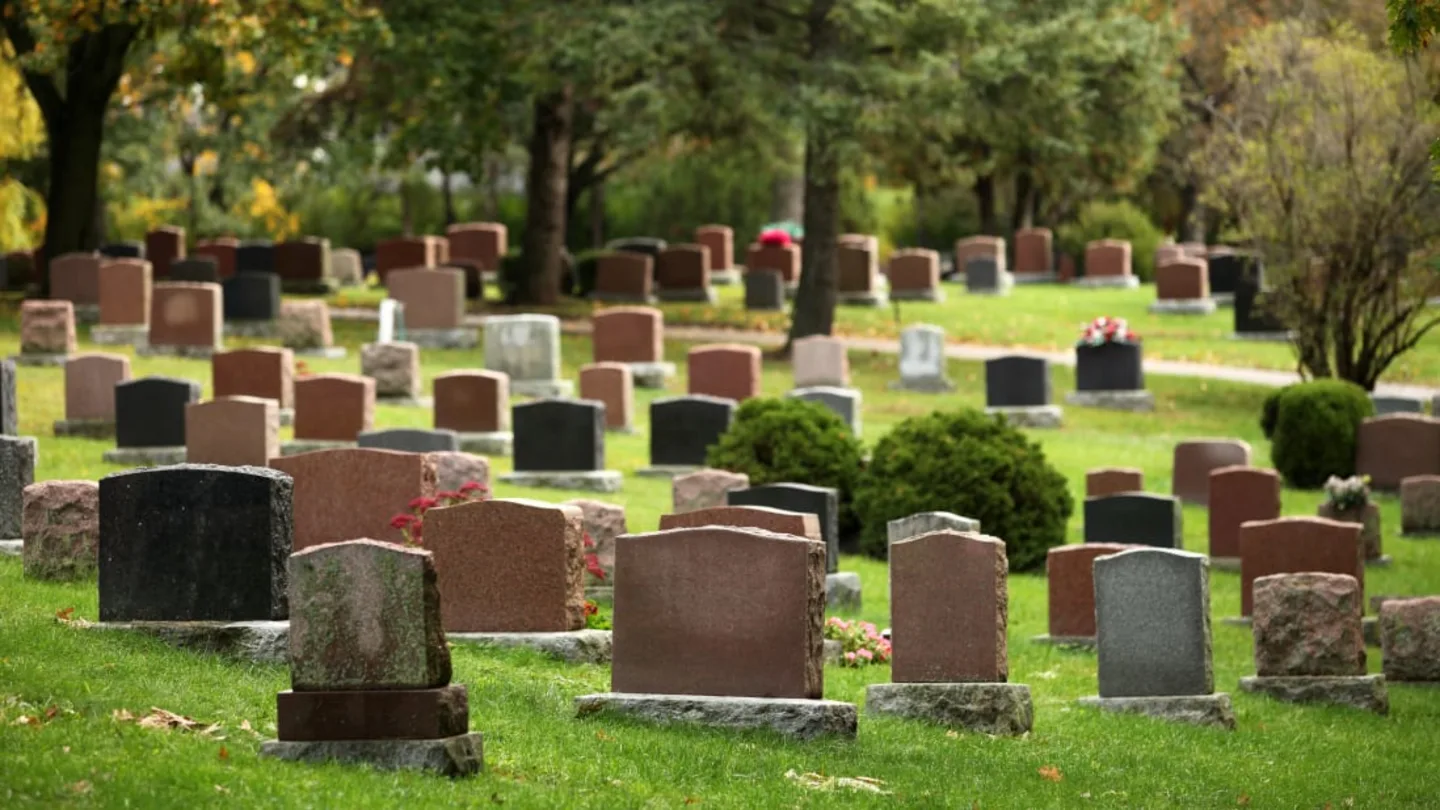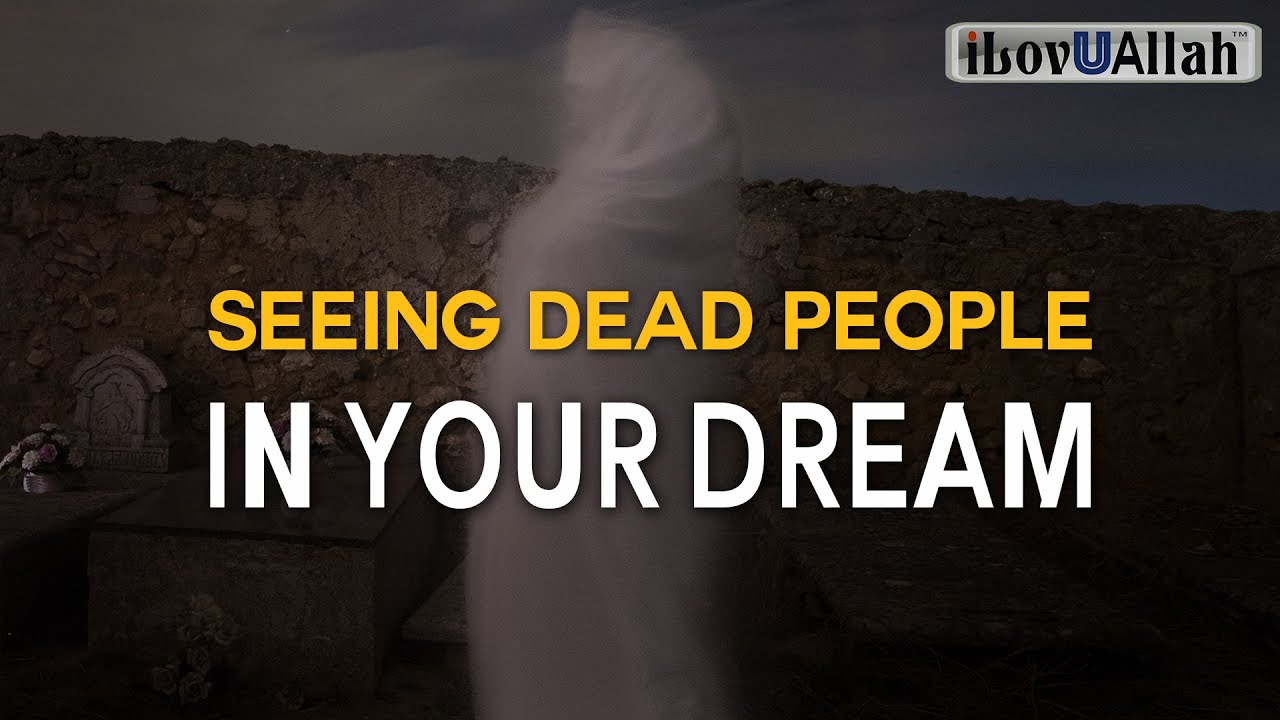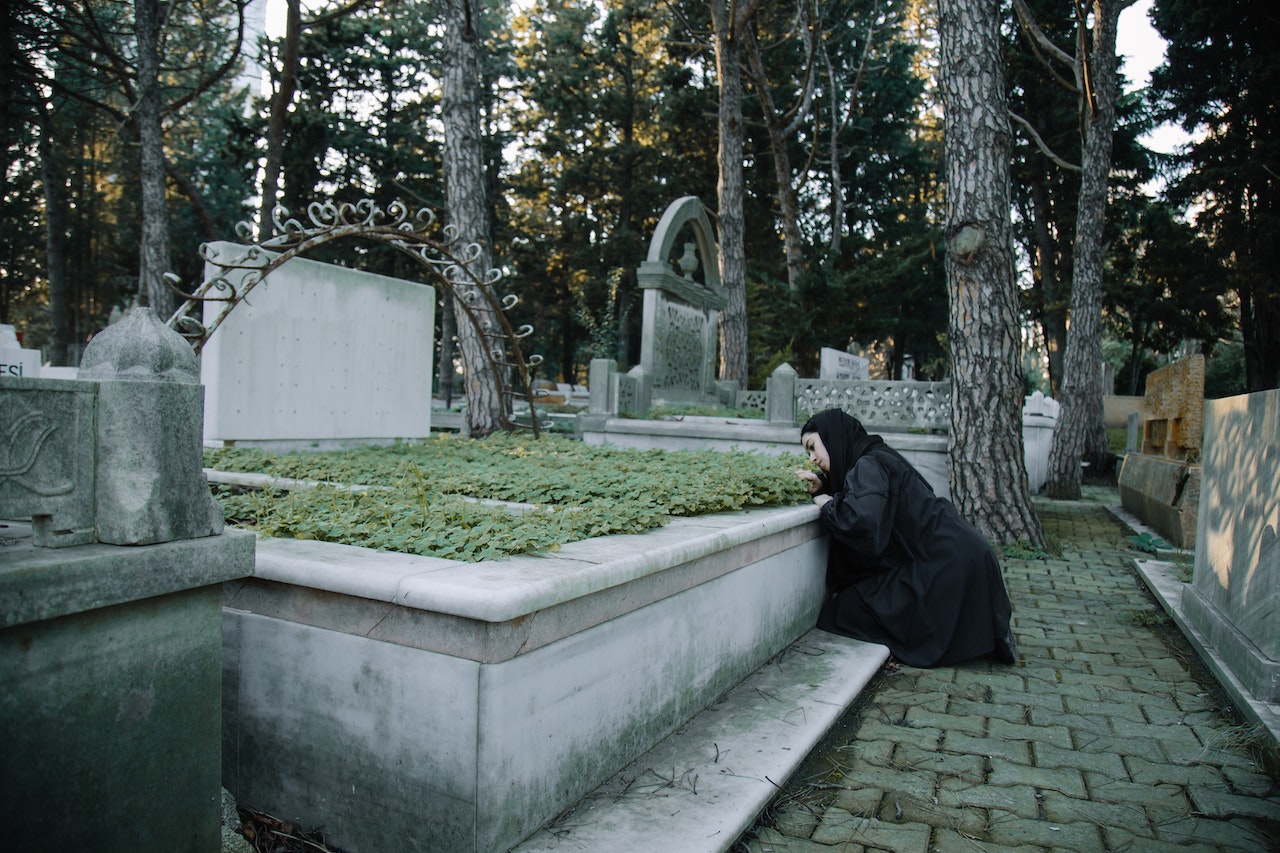A Deceased Loved One In Dreams - Unlocking The Messages Of The Afterlife
While the pain may never fully go away, many people find comfort in the idea that their loved one is watching over them, even if it's only in their dreams. A deceased loved one in dreams can be a profound experience.
Author:Suleman ShahReviewer:Han JuApr 27, 202314.2K Shares309.3K Views

Losing a loved one is one of the most challenging and emotional experiences one can face. Coping with the loss of someone close to us can be a difficult process that takes time and a lot of support from friends and family.
While the pain may never fully go away, many people find comfort in the idea that their loved one is watching over them, even if it's only in their dreams.A deceased loved one in dreamscan be a profound experience.
It can be comforting to feel like you are still connected to someone you have lost, even if it is only in your subconscious mind. Many people report having dreams where their loved ones come to them to offer reassurance or to provide closure on unresolved issues. While these dreams can be difficult to interpret, they can also be a source of comfort and healing.
Understanding The Meaning Of Dreams
The study of dreams and their meanings is known as oneirology, which is a branch of psychology. Dreams are a mysterious and fascinating aspect of the human experience, and people have been interested in understanding them for centuries.
Dreams are the mental activity that occurs during sleep, and they can be influenced by a variety of factors such as past experiences, current emotions, and even external stimuli. The meaning of dreams is a topic of much debate and controversy among researchers and theorists.
Many people believe that dreams are symbolic representations of the subconscious mind and that they can provide insight into our thoughts, emotions, and experiences that we may not be aware of in our waking lives. Othersbelieve that dreams are simply a random byproduct of brain activity during sleep and that they have no inherent meaning.
There are many different approaches to interpreting dreams, ranging from psychoanalytic theories to cognitive theories. Psychoanalytic theories, developed by Sigmund Freud, suggest that dreams are symbolic representations of repressed desires and conflicts that are too difficult for the conscious mind to process. According to this theory, dreams provide a way for the unconscious mind to express itself in a safe and controlled way.
Cognitive theories, on the other hand, suggest that dreams are a product of the brain's natural problem-solving abilities. According to this theory, dreams help us to process and consolidate information from our waking lives, and to solve problems, and work through difficult emotions in a safe and non-threatening way.
Regardless of the theory or approach, the interpretation of dreams is highly subjective and dependent on individual experience and perspective. There is no one-size-fits-all approach to understanding the meaning of dreams, and different people may interpret the same dream in very different ways.
Overall, the meaning of dreams remains a fascinating and complex topic that continues to intrigue and inspire researchers, theorists, and individuals alike. While the true nature and purpose of dreams may never be fully understood, the study of dreams and their meanings provide a unique window into the workings of the human mind and the mysteries of the unconscious.
Dreams Of Deceased Loved Ones And Spirituality
The experience of dreaming about deceased loved ones can be a powerful and emotional experience for many people. Dreams of this nature can often leave individuals with a sense of comfort and connection to those who have passed away, and for many, these dreams may hold significant spiritual meaning.
In many spiritual and religious traditions, it is believed that the soul or spirit of a person continues after death, and may even continue to interact with the living world in various ways. For some, dreaming of a deceased loved one may be seen as a manifestationof this ongoing connection, and may be interpreted as a message or sign from the other side.
At the same time, dreams of deceased loved ones may also be a natural part of the grieving process. Dreams can offer a way for individuals to process their emotions and work through feelings of loss and sadness. In this sense, dreams of deceased loved ones may be seen as a form of spiritual healing, allowing individuals to find comfort and closure in their relationship with those who have passed away.
It is worth noting that the interpretation of dreams is deeply personal and subjective, and may vary widely depending on an individual's cultural background, spiritual beliefs, and personal experiences. For some, dreams of deceased loved ones may hold great spiritual significance, while for others, they may be simply a natural and meaningful part of the grieving process.
Ultimately, dreams of deceased loved ones can offer a powerful and meaningful way for individuals to connect with the memory of those they have lost and may offer a sense of comfort, closure, and spiritual guidance as they navigate the challenges of grief and loss.
A Deceased Loved One In Dreams - Moving Forward With Support
Dreams of deceased loved ones can be both comforting and distressing. They can be a way for us to feel close to the person we have lost, but they can also bring up painful emotions and memories. These dreams can feel incredibly real, and it's not uncommon for people to wake up feeling like their loved one was there with them.
While dreams of deceased loved ones can vary widely in content, they often have a common theme. Many people report dreams where their loved one appears healthy and happy, which can be reassuring. Others may dream of their loved one in distress or appearing as they did at the time of their death. These dreams can be more difficult to cope with and may require more support.
It's important to remember that dreams are a natural part of the grieving process. They can help us work through our emotions and come to termswith our loss. However, if these dreams are causing significant distress or interfering with daily life, it may be helpful to seek support from a therapist or grief counselor.
Many strategies can help cope with the dreams of deceased loved ones. One approach is to try to focus on the positive emotions that the dream evokes, such as feeling close to the person or experiencing a sense of peace. Writing down the details of the dream can also be helpful, as it allows you to process the experience and gain insight into your emotions.
It's important to give yourself time and space to grieve and to remember that everyone's grief journey is unique. Surrounding yourself with supportive friends and family members can also be incredibly helpful. Finally, it's important to take care of yourself physically and emotionally by eating well, getting enough sleep, and engaging in activities that bring you joy.

SEEING DEAD PEOPLE IN YOUR DREAM
Coping Strategies For Dealing With Dreams Of Deceased Loved Ones
Dreams of deceased loved ones can be both comforting and distressing. On one hand, they can provide a sense of connection to the person who has passed away, allowing us to feel their presence and remember them fondly.
On the other hand, these dreams can also be very emotional and can trigger feelings of grief and loss, making it difficult to cope with their absence in waking life. When dealing with dreams of deceased loved ones, several coping strategies can help. These strategies include.
- Acknowledge and accept your emotions - It's important to recognize that these dreams can be emotionally challenging, and it's okay to feel whatever emotions come up. Whether it's sadness, longing, or joy, allow yourself to experience and process these emotions.
- Reflect on the dream- Take some time to reflect on the dream and what it may symbolize. Dreams can be full of symbolism and meaning, and exploring the imagery and themes of the dream can provide insight into your emotions and thoughts.
- Write about the dream- Writing about the dream can be a helpful way to process your emotions and gain clarity on the meaning of the dream. You could write a journal entry, a letter to your loved one, or even a poem or story inspired by the dream.
- Talk to someone - Sharing your experience with someone you trust can be a helpful way to process your emotions and gain perspective. This could be a friend, family member, therapist, or support group.
- Engage in self-care - Take care of yourself physically and emotionally by engaging in activities that bring you comfort and joy. This could include exercise, meditation, spending time in nature, or engaging in creative pursuits.
- Seek professional help- If you are struggling to cope with the emotions and thoughts surrounding the dream, consider seeking the help of a mental healthprofessional. They can provide support and guidance on how to navigate this experience.
It's important to remember that dreams of deceased loved ones are a normal and natural part of the grieving process. By acknowledging and processing your emotions, reflecting on the dream, and engaging in self-care, you can find ways to cope with these dreams in a healthy and meaningful way.
People Also Ask
Can The Dream Of A Deceased Loved One Be A Sign Of The Afterlife?
There is no scientific evidence to support this, but some people believe it can be a comforting message from the other side.
Why Do Some People Dream Of Their Deceased Loved Ones?
Dreaming of a deceased loved one can be a way for the brain to process grief and help the individual come to terms with the loss.
Is It Common To Dream Of Deceased Loved Ones?
Yes, it is relatively common for people to dream of deceased loved ones, particularly in the early stages of grief.
Can Dreaming Of A Deceased Loved One Be Distressing?
Yes, dreaming of a deceased loved one can be distressing for some individuals, particularly if the dream is a nightmare or the loved one appears negatively.
Is There Any Way To Control Or Influence Dreaming Of A Deceased Loved One?
There is no guaranteed way to control or influence dreaming of a deceased loved one, but practicing good sleep hygiene and focusing on positive memories before sleep may increase the likelihood of positive dreams.
Conclusion
A deceased loved one in dreams can be a powerful and emotional experience. While these dreams can be difficult to interpret, they can also be a source of comfort and healing.
Whether the dream is a reflection of your subconscious mind or a message from beyond the grave, it's important to find ways to honor and connect with your loved one. By seeking support from others and taking practical steps to find comfort in your dreams, you can move forward with your grief in a healthy way.

Suleman Shah
Author
Suleman Shah is a researcher and freelance writer. As a researcher, he has worked with MNS University of Agriculture, Multan (Pakistan) and Texas A & M University (USA). He regularly writes science articles and blogs for science news website immersse.com and open access publishers OA Publishing London and Scientific Times. He loves to keep himself updated on scientific developments and convert these developments into everyday language to update the readers about the developments in the scientific era. His primary research focus is Plant sciences, and he contributed to this field by publishing his research in scientific journals and presenting his work at many Conferences.
Shah graduated from the University of Agriculture Faisalabad (Pakistan) and started his professional carrier with Jaffer Agro Services and later with the Agriculture Department of the Government of Pakistan. His research interest compelled and attracted him to proceed with his carrier in Plant sciences research. So, he started his Ph.D. in Soil Science at MNS University of Agriculture Multan (Pakistan). Later, he started working as a visiting scholar with Texas A&M University (USA).
Shah’s experience with big Open Excess publishers like Springers, Frontiers, MDPI, etc., testified to his belief in Open Access as a barrier-removing mechanism between researchers and the readers of their research. Shah believes that Open Access is revolutionizing the publication process and benefitting research in all fields.

Han Ju
Reviewer
Hello! I'm Han Ju, the heart behind World Wide Journals. My life is a unique tapestry woven from the threads of news, spirituality, and science, enriched by melodies from my guitar. Raised amidst tales of the ancient and the arcane, I developed a keen eye for the stories that truly matter. Through my work, I seek to bridge the seen with the unseen, marrying the rigor of science with the depth of spirituality.
Each article at World Wide Journals is a piece of this ongoing quest, blending analysis with personal reflection. Whether exploring quantum frontiers or strumming chords under the stars, my aim is to inspire and provoke thought, inviting you into a world where every discovery is a note in the grand symphony of existence.
Welcome aboard this journey of insight and exploration, where curiosity leads and music guides.
Latest Articles
Popular Articles
